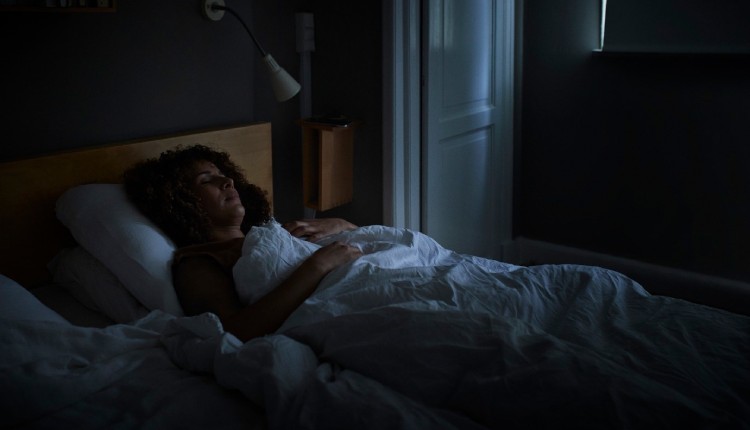Tips to Help You Fall Asleep Faster Without Tossing
If you wish for uninterrupted sleep, here are some tips to fall asleep without tossing.
Tossing and turning in bed, desperately trying to find that elusive slumber? We have all been there. The frustration of not being able to fall asleep can be maddening, leaving us drained and groggy the next day. But fear not! In this article, we will share with you tips that will have you snoozing like a baby in no time. Say goodbye to restless nights and say hello to blissful sleep! So grab your favourite cosy blanket and get ready to learn how to fall asleep faster.
The Importance of a Good Night’s Sleep
A good night’s sleep is like a superpower that many of us often take for granted. It’s not just about feeling refreshed and energized in the morning; it plays a vital role in our overall well-being. When we sleep, our bodies go into repair mode, healing and rejuvenating cells while our minds process information and consolidate memories.
Lack of quality sleep can have detrimental effects on both our physical and mental health. Research has shown that chronic sleep deprivation increases the risk of developing conditions such as obesity, diabetes, cardiovascular diseases, and even certain types of cancer. On top of that, it can impair cognitive function, affecting memory retention, focus, creativity, and problem-solving abilities—the list goes on.
Without sufficient restorative rest each night, we may find ourselves irritable throughout the day with diminished productivity levels. Our immune system also takes a hit when we don’t get enough shut-eye—leaving us more susceptible to catching those pesky colds or flu bugs.
So remember: prioritizing sleep isn’t just an indulgence; it’s essential for living a healthy and fulfilling life. Let’s explore some tips to help you fall asleep faster so you can reap the benefits your body deserves!
Common Causes of Difficulty Falling Asleep
Do you find yourself tossing and turning at night, unable to fall asleep easily? You are not alone. Many people struggle with this common problem. There are several potential causes for difficulty falling asleep, and understanding them can help you address the issue.
One possible cause is stress and anxiety. When your mind is racing with worries or thoughts of what needs to be done tomorrow, it can be hard to relax and drift off into dreamland. Another common culprit is an irregular sleep schedule. Our bodies thrive on routine, so inconsistent bedtimes can disrupt our natural sleep-wake cycle.
External factors like noise or light pollution may also contribute to difficulty falling asleep. Even small disturbances in your sleeping environment can prevent you from achieving a restful state.
Additionally, lifestyle choices such as consuming caffeine or heavy meals close to bedtime can interfere with the body’s ability to wind down naturally. Electronic devices emit blue light that suppresses melatonin production – a hormone responsible for regulating our sleep-wake cycle – making it harder for us to fall asleep.
By identifying these common causes of difficulty falling asleep, we can take steps towards improving our sleep quality and overall well-being. In the next section, we will explore some practical tips that can help you overcome these challenges and achieve a good night’s rest!
Tip 1: Establish a Relaxing Bedtime Routine
Establishing a relaxing bedtime routine is essential for falling asleep faster and improving the quality of your sleep. A consistent routine signals to your body that it’s time to unwind and prepare for rest. Here are some tips to help you create an effective bedtime routine:
1. Set a regular sleep schedule: Practice to go to bed and wake up at the same time every day, even on weekends. This helps regulate your body’s internal clock.
2. Wind down before bed: Engage in relaxing activities like reading a book, taking a warm bath, or practising gentle stretching exercises. Avoid stimulating activities such as watching TV or using electronic devices close to bedtime.
3. Create a calm environment: Make sure your bedroom is comfortable, quiet, and dark. Use blackout curtains or an eye mask if necessary.
4. Limit caffeine intake: Avoid consuming caffeinated beverages like coffee or energy drinks late in the day as they can interfere with your ability to fall asleep.
5. Practice relaxation techniques: Deep breathing exercises, progressive muscle relaxation, or meditation can help calm your mind and prepare you for sleep.
6. Throw away negative thoughts from the day: Write down any worries or concerns before bed so that you can clear them from your mind and relax more easily.
By incorporating these tips into your bedtime routine, you will be setting yourself up for better sleep hygiene and improved overall well-being!
You may also like: Top 4 Benefits of Sleeping on the Floor
Tip 2: Create a Comfortable Sleeping Environment
Creating a comfortable sleeping environment is crucial for falling asleep faster and getting a good night’s rest. Here are some tips to help you optimize your sleep environment:
First, consider the temperature of your bedroom. It’s generally recommended to keep the room cool, around 75-80 degrees Fahrenheit (23-26 degrees Celsius), as this can promote better sleep.
Next, assess your mattress and pillows. A supportive mattress that suits your comfort preferences is essential for a good night’s sleep. Additionally, using pillows that properly align your spine and support your neck can prevent discomfort during the night.
Lighting also plays a significant role in creating an ideal sleeping environment. Ensure that your bedroom is dark enough by using blackout curtains or blinds to block out external light sources like streetlights or sunlight.
You may also want to reduce any noise distractions in the room. Consider using earplugs or playing white noise if you live in a noisy area or have trouble with ambient sounds disturbing your sleep.
Decluttering your bedroom can contribute to creating a calm and peaceful atmosphere conducive to sleep. Remove any unnecessary items from sight and try keeping electronic devices away from the bed as their screens emit blue light which interferes with melatonin production – the hormone responsible for regulating our sleep-wake cycle.
By focusing on these aspects of creating a comfortable sleeping environment, you will be setting yourself up for more restful nights and easier bedtime routines!

Tip 3: Avoid Stimulants and Heavy Meals Before Bed
When it comes to getting a good night’s sleep, what you eat and drink before bed can make all the difference. Consuming stimulants like caffeine or nicotine close to bedtime can keep your mind alert and prevent you from falling asleep quickly. So, if you’re struggling to drift off into dreamland, consider cutting back on that evening cup of coffee or cigarette.
In addition to avoiding stimulants, it’s also important to steer clear of heavy meals right before bedtime. Eating large amounts of food late at night can lead to discomfort and indigestion, making it harder for you to fall asleep peacefully. Instead, opt for lighter meals in the evening and try not to eat within a couple of hours before hitting the hay.
Remember that everyone is different when it comes to their sensitivity towards certain foods and substances. It may be helpful for you to pay attention to how specific foods or drinks affect your sleep patterns individually by keeping a sleep diary.
By being mindful of what goes into your body in the hours leading up to bedtime, you will give yourself a better chance at achieving quality sleep each night without any unnecessary disruptions!
Tip 4: Use Relaxation Techniques, such as Breathing Exercises or Meditation
Relaxation techniques are a great way to calm the mind and prepare your body for sleep. One effective technique is deep breathing exercises. By focusing on your breath and taking slow, deep inhales and exhales, you can activate the body’s relaxation response and promote a sense of calm.
Meditation is another powerful tool that can help you unwind before bed. By sitting quietly and clearing your mind of racing thoughts, you can cultivate a state of relaxation that prepares you for sleep. There are many different meditation techniques to try, such as mindfulness meditation or guided imagery.
If you are new to meditation, it may take some practice to find what works best for you. Start with just a few minutes each night and gradually increase the duration as you become more comfortable with the practice.
In addition to these techniques, there are also apps available that offer guided meditations specifically designed for sleep. These apps often have soothing music or calming voices that guide you through relaxation exercises.
Remember, consistency is key when using relaxation techniques for better sleep. Make it a part of your nightly routine and give yourself time to unwind before climbing into bed. With regular practice, these techniques can become an essential tool in helping you fall asleep faster and enjoy a restful night’s sleep without any disruptions!
Tip 5: Try Aromatherapy with Essential Oils
Incorporating aromatherapy into your bedtime routine can be a game-changer when it comes to falling asleep faster. Essential oils have been used for centuries for their soothing and calming properties, making them an excellent natural remedy for sleep troubles.
Lavender is one of the most popular essential oils known for its relaxing effects. Its sweet and floral scent helps promote relaxation, reduces anxiety, and improves sleep quality. You can add a few drops of lavender oil to your pillowcase or use a diffuser in your bedroom to create a peaceful atmosphere.
Another great option is chamomile essential oil. Known for its mild sedative properties, chamomile helps induce sleepiness by reducing stress and promoting relaxation. Diffusing chamomile oil before bed or adding a few drops to a warm bath can help you unwind and prepare your body for restful slumber.
If you struggle with racing thoughts or find it challenging to quiet your mind at night, consider using ylang-ylang essential oil. This fragrant floral oil has mood-balancing properties that can help reduce anxiety, calm the nervous system, and promote deep relaxation.
When using essential oils for sleep support, it’s important to choose high-quality oils and dilute them properly before use. Some individuals may have sensitivities or allergies to certain scents, so always patch-test new oils first.
By incorporating aromatherapy into your night routine with these essential oils mentioned above or experimenting with other scents that resonate with you personally, you will create an environment conducive to falling asleep faster and enjoying more restorative sleep throughout the night.
Remember that everyone is unique in what works best for them when it comes to improving their sleep quality. It may take some trial and error before finding the perfect combination of strategies that work well together.
So why not start implementing some of these tips tonight? Establishing a relaxing bedtime routine, creating a comfortable sleeping environment, avoiding stimulants, practising relaxation techniques, and incorporating aromatherapy with essential oils are all great tips to include in your night routine for a night of better quality sleep.
We will be delighted to have your thoughts and feedback. Please write to us at [email protected]
Follow Life and Trendz on Instagram:https://www.instagram.com/lifeandtrendz/
Facebook: https://www.facebook.com/lifeandtrendz
Twitter: https://twitter.com/LifeandTrendz


Comments are closed.